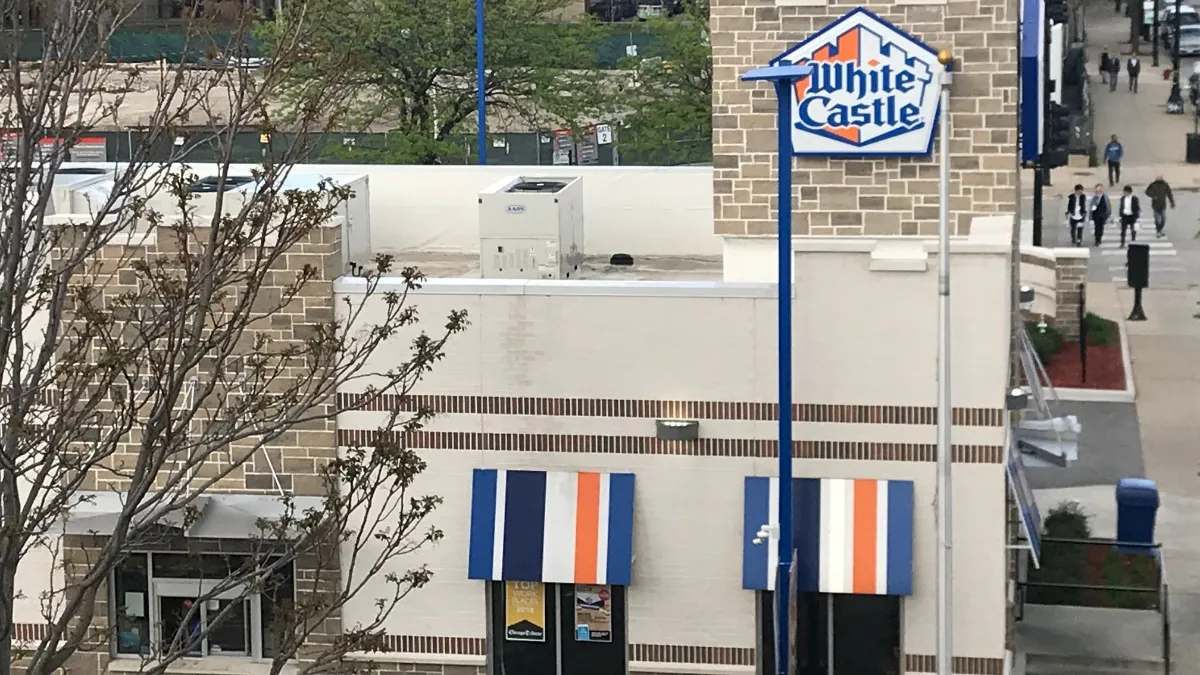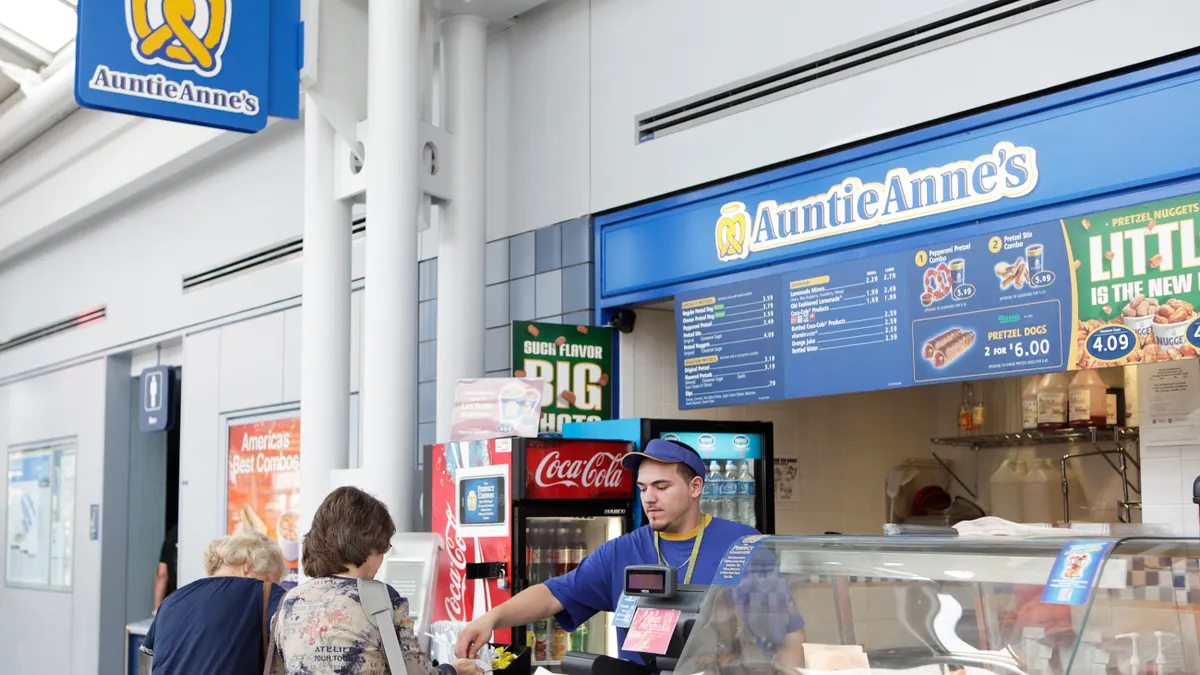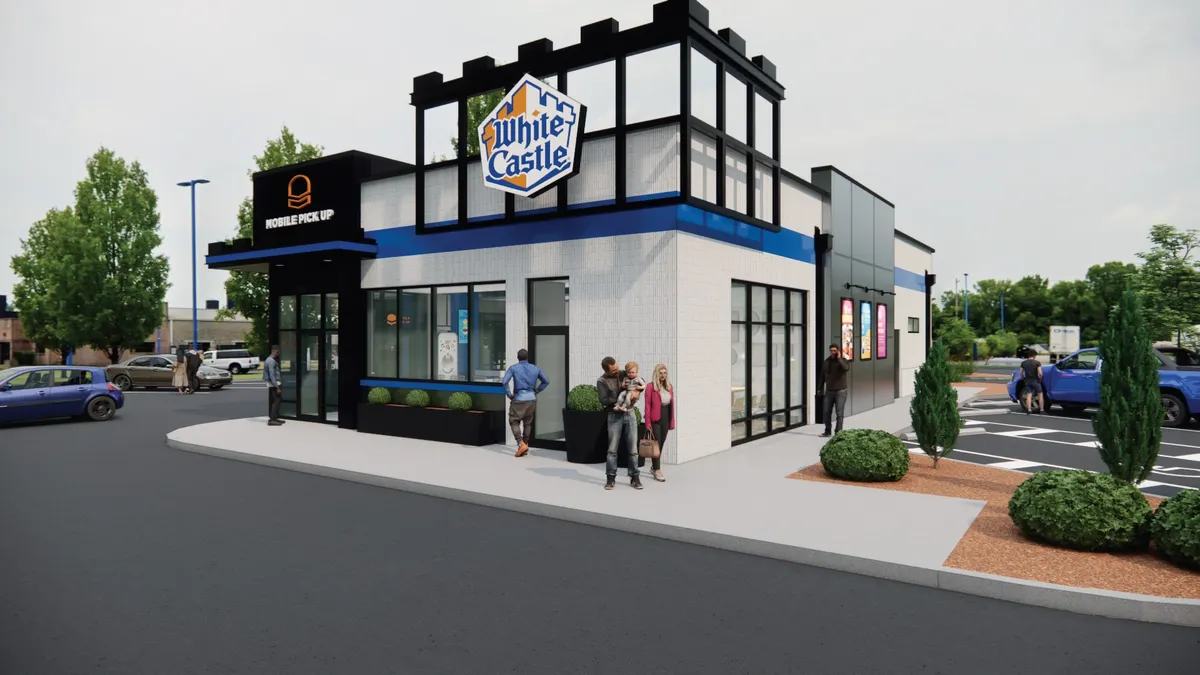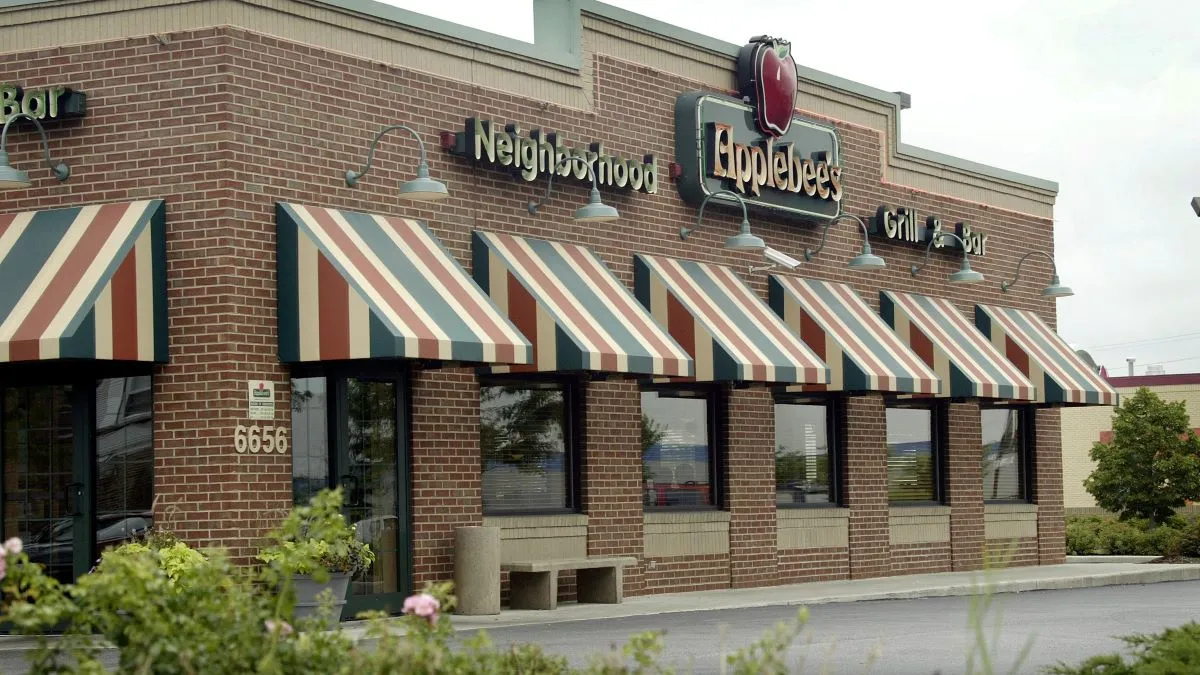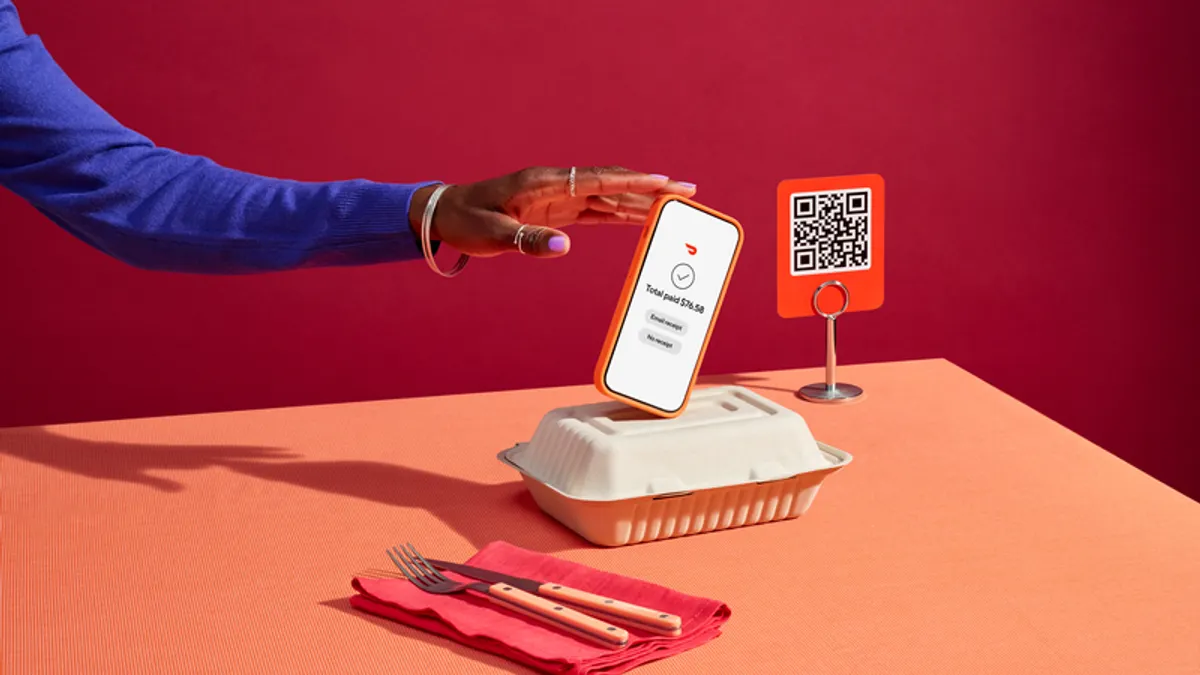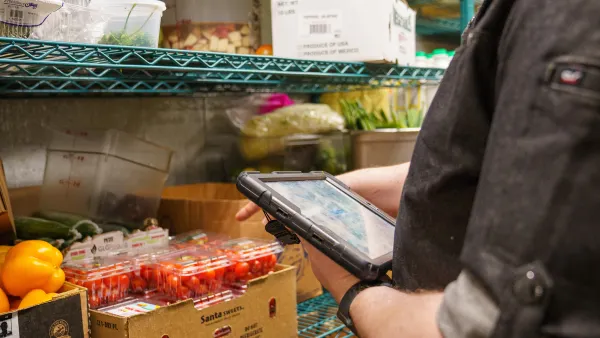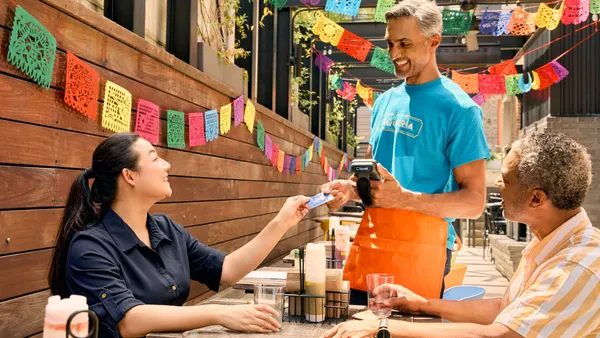Lunch Break is a series of Q&As with restaurant leaders about how their brands are overcoming industry challenges.
As the labor shortage continues to eat away at restaurants' peace of mind and bottom lines, many brands are looking to technology to reduce reliance on human employees. But for White Castle, time-saving technologies must work in concert with the brand's top retention tool: company culture.
Restaurant Dive spoke with COO Jeff Carper about how the chain's team member app and data-enhanced wearables are reducing stress for workers and how capping general managers' work weeks at 40 hours helps the business from the top down. Carper also discussed White Castle's plans to rethink its payment and benefit strategy to appeal to an evolving workforce, and how its biggest labor challenge is getting would-be employees through the door.
This interview has been edited for clarity and brevity.
RESTAURANT DIVE: How do you create a culture that makes employees want to stay at White Castle?
JEFF CARPER: I think it goes back to first our relationship with our general managers, putting them in a position where they buy into the "why." I think the more I can get more of my GMs bought into why do we do it, then they're able to make the Castle an environment for those team members where when they come in, they want to stay.
When I travel and talk to people and ask "Why have you stayed so long?" the resounding answer becomes because it's a family here. It's not a job. Not everyone has a great life outside of the Castle so we can create that great escape for them or great opportunity to show how we can take care of them or how they can succeed. Not every 16- or 17- or 22-year-old is going to come in and say, "I'm going to be here for 30 years," but again I still say it's one of those opportunities where someone comes in making $12 an hour and then five years later they can be making maybe $75,000 or $80,000 a year if they want to grow.
"When I travel and talk to people and ask 'Why have you stayed so long?' the resounding answer becomes because it's a family here. It's not a job."

Jeff Carper
COO, White Castle
May is national hamburger month, but we take it a step further so [every year] in the month of May — it's a requirement — we ask all of our team members in our corporate office to go out and work either in a Castle or one of our manufacturing plants so that they remember why we're in business. We wouldn't have a home office if it wasn't for our Castles or our manufacturing plants that make our retail product — our burgers, our patties and our buns. And I think that helps also because the team members in the Castle get to see the people from the home office come in and struggle a little bit and understand this is not the easiest job in the world. It helps the team member in the [corporate] office remember not to call at noon — noon is lunch break for you but it's not lunch break for the Castle, so it really helps build that cohesiveness and really get that engagement.
How do you show teenagers working at your restaurant that this is a place where they can launch their career?
Carper: We map it out. We sit down and talk to an individual and say, "Look, you're starting out. Here's how the program works and here are the various positions." We're testing in some of our regions where you start work and then every 90 days you get a 50 cent raise. We show them that if you perform well here and you want to continue to move up here's your opportunity to have a trainer, a crew manager, become an assistant manager, become a general manager. We don't dump that all on to them on their first day. We have our onboarding program, what we call our first 30, which takes the crew member through what's really critical for them during the first 30 days and 30 hours of work. Then we try to map out opportunities as they grow, and pay is a very big part of that and then we figure out what other benefits could come into play there.
It's also our challenge to make sure that our GMs understand that they have to have flexibility. You can't just expect that every employee is going to want to work the same schedule every week, every day. Flexible schedules are key.
"We ask all of our team member in our corporate office to go out and work either in a Castle or one of our manufacturing plants so that they remember why we're in business."

Jeff Carper
COO, White Castle
How do you ensure that your GMs only work 40-hour weeks?
Carper: It's tough. And part of it is because of their commitment. Our GMs don't want to fail, so they want to go over and above. We have constant communication and conversations with our regional directors and district supervisors to make sure that we're monitoring that, talking to the GMs, making sure that while the expectation is we want you to work 40 hours, if your business isn't where it needs to be, you might have to work a little more than 40 hours. But we help them understand how to schedule that, how to make sure that your training's set up right, how to make sure that when you do interviews that you've got those set up so you're not having to come in 48 hours or 50 hours.
It used to be different. In my former life as a GM, it was a 50-hour work week. It was five 10-hour days, that's usually been the standard and isn't unusual at all in the restaurant space. We have a scorecard. If it's gold, that means you're a superstar. Green means you're on target, and you're doing everything we're asking for that, and red means you're below standard. If you're gold, I don't care how much you work. You make your schedule and we'll leave you alone.
Was automation part of that process?
Carper: Yes. We put a team together earlier this year and they put together a "stop doing" list. We're sending more stuff out through our team member app. We're testing a wearable we developed in-house where our manager on duty has a watch and we can send real time data to that watch to say, "Hey, last hour this happened, here's an idea, here's something you should check on." And the GM now is able to have that information pushed to their cell phone so if they're home they can check in and see what's happening at the Castle. That technology helps us get more information into the hands of people that need to execute it.
What do you find the most challenging when it comes to the restaurant labor problem?
Carper: At the end of the day it's still getting applicants. With the number of opportunities there are for people out there, you can walk anywhere and get a job. So we need to figure out how we reach the person the right way and get them to want to come to our app and look at that. We do everything online now. We asked our team members to help with that, and ask "Who are your friends? You like it here so why wouldn't you want some of your friends to work here?" Still the biggest challenge is getting someone to engage with us on the front end. I still believe it's being able to communicate on the front end about what you're gonna make. Because if everyone around me is paying $10 an hour ... I'm going to get more looks if I offer $11.50 an hour.
"Still the biggest challenge is getting someone to engage with us on the front end... if everyone around me is paying $10 an hour, I'm going to get more looks if I offer $11.50."

Jeff Carper
COO, White Castle
Has increasing pay been part of the strategy?
Carper: Yes it has. We've got a major initiative in 2020 to step back and say how do we create new compensation and a benefit plan for our team members of the future. We offer profit sharing, we offer a 401(k) plan and we offer healthcare and vacation. It may be now that somebody would rather make $14 an hour than have profit sharing or a 401(k) opportunity, so we've got to step back and decide do we look at a cafeteria plan and say if you get $12 an hour, you get these benefits, and here's what you get at $14 an hour. We can't just rest on our laurels and say it's always worked for us. We really need to tweak things.
But when you charge 75 to 79 cents for a small, square burger, customers are only going to be willing to pay so much. So I can't come in all of a sudden and say I'm going to charge you $1.10 for a slider to help offset all of that labor investment. But, at the end of the day, I can't operate without team members in the Castle. The home office is not a profit center. We make good decisions to try and drive profit but I make my money in Castles, and if I don't have team members, I lose everything else. So it's really critical for us to figure out how that team is taken care of. Other parts of my team may have to take a cut or may have to lose a benefit or take a reduction of some kind so I can put that money back in the Castle. It's a balancing act, and we've looked at that since I've been here. We've gone through some restructuring. We've reduced positions and some other parts of the business because I know at the end of the day I've gotta be able to pay my hourly team members in the Castles.
What excites you the most about technology's role in retention going into the future?
Carper: What's exciting to me is it's not about technology replacing a team member. Technology is going to help me supplement my existing team members and really make a difference in the business. And as we do that, it's going to make our job as existing team members so much easier. I really cannot hire everybody I need to hire because they're just not out there. In our drive-thru area, that person needs to take an order, they need to greet the customer. When they get to the window, they have to make their drink, they have to bag their order, and they have to hand the food out to the customer. If I can take one of those steps out of that team member's life, then now all of a sudden it's a big relief for them and their job becomes easier and therefore more fun, less stressful, so they want to stick around.
So that's what excites me — how do we get that really going. We can make it great for the customer, but the customer experience will never exceed my team members' experience. I've got to figure out how to make my team member experience great. That is the key. From a technology standpoint, we don't know what's that going to look like yet. Is it going to be drones delivering our food? Is it going to be a talking menu board? Is it going to be a robot that we put in the middle of our grills that has eight arms, and all my team member has to do is put pickles and cheese on a burger, put it in a box and go? You've got to be open to everything and see how all of this works.



